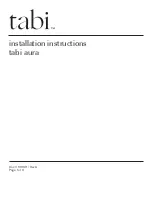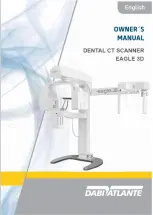
■
The tools and backgauge of the TruBend are clamped and
positioned.
■
The gripper used is fitted on the BendMaster if it has not
been fitted yet.
■
Either the blank is picked up and transferred to the backlight-
ing table or a fine recognition is performed at the stack.
■
If double sheet recognition was activated, double sheet rec-
ognition and double sheet separation are performed.
■
The bending program is executed.
■
Finished sheets are set down on the unloading stack.
The points within a path that the BendMaster moves along when
approaching and traveling are referred to as calibration points
and programmed in TruToPs. There are two ways of editing such
calibration points:
■
To teach a point: the desired position of the marked point is
approached manually and saved as a new position.
■
To edit a point: the position is changed by changing the coor-
dinates manually in the respective coordinate system. In
addition, the interpolation type, the speed and the overlay
can also be changed if the respective user level is logged
on.
The path does not always need to be precisely complied with in
some travel motion sections. The cycle time can be reduced by
starting the next path early. This procedure is called overlaying:
P1 Interpolation point 1 (starting
point)
P2 Interpolation point point 2 (over-
lay point)
P3 Interpolation point 3 (end point)
1
Path length between starting
point and interpolation point
2
Executed path (overlay)
3
Path length between interpola-
tion point and end point
Overlaying calibration point
Fig. 45198
B579EN
2015-06-01
Running in a TruTops program
4
‐
95
Interpolation points
Overlay
Summary of Contents for BendMaster 150
Page 1: ...Operator s manual BendMaster TruBend Cell 5000...
Page 2: ......
Page 3: ...Operator s manual BendMaster TruBend Cell 5000 Original operator s manual Edition 2015 06 01...
Page 6: ...II Before you proceed 2015 06 01 B579EN...
Page 16: ...0 10 Table of contents 2015 06 01 B579EN...
Page 44: ...1 28 Disassembly and disposal 2015 06 01 B579EN...
















































